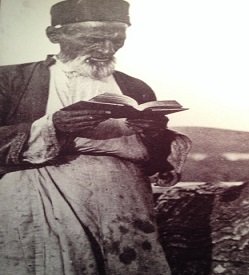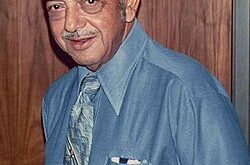Seeing the 200 young Jewish adults, who came to Thessalonika from the Balkans for the JDC Gesher program, evoked a sense of the kind of Jewish energy that once made this city a magnet of Sephardic life
Salonika, the name used historically for the city, was once a great center of Jewish culture and commerce. Jewish presence in the city can be dated back to the Second Century, BC. But it was during the Ottoman era, beginning in the 15th Century when Jews were expelled from Spain and Portugal – that Salonika became a magnet for Jewish life. With the arrival of scholars and students, Salonika became a leading center for Torah and Jewish study. It’s poets, writers and musicians – performing in Ladino, a mix of Spanish-Hebrew – were a cultural centerpiece of the Jewish world.
 By the turn of the 20th Century, nearly half the city’s population of 170,000 were Jewish. They lived peacefully with their Moslem and Christian neighbors, a mosaic of intercultural and interfaith harmony.
By the turn of the 20th Century, nearly half the city’s population of 170,000 were Jewish. They lived peacefully with their Moslem and Christian neighbors, a mosaic of intercultural and interfaith harmony.
With 30 different “kehillot”, Salonika was a diverse and pluralistic community. While there were families of great wealth, the vast majority of Jews were working class- artisans, traders, and laborers. In fact, there were so many Jewish dockworkers that the port was closed on Shabbat!
Natural disaster and the Nazis destroyed the Jewish community. In 1917, a huge fire engulfed the seaside neighborhoods where Jews predominantly inhabited, destroying their homes, synagogues and yeshivas
Following the Nazi occupation in 1942, Jews were persecuted, their property expropriated and sent to forced labor. In 1943, over 45,000 Jews – almost the entire community – were deported to the Nazi death camps. Few survived. A once-vibrant Jewish center was destroyed.
Today, there are less than 1,000 Jews living in Salonika. There are two active synagogues, a community center, primary day school, and a Jewish museum, with an impressive collection of artifacts and photos tracing the long and remarkable history of the community.
 With this backdrop, the arrival of some 200 Jews from around the Balkans, all in the 20s and 30s, injected a Jewish vitality into Salonika not seen for many decades. They came to Salonika in June for the annual Entwine program, a networking of young Jewish adults sponsored by JDC. They sang, danced, studied, and prayed together. Not least of all, the met Jews from other countries, where the population is also tiny and the opportunities for friendships and finding a Jewish partner are very slim.
With this backdrop, the arrival of some 200 Jews from around the Balkans, all in the 20s and 30s, injected a Jewish vitality into Salonika not seen for many decades. They came to Salonika in June for the annual Entwine program, a networking of young Jewish adults sponsored by JDC. They sang, danced, studied, and prayed together. Not least of all, the met Jews from other countries, where the population is also tiny and the opportunities for friendships and finding a Jewish partner are very slim.
A walk through the lower city along the gulf, once densely populated with Jews, one can only imagine the vibrancy of a great Jewish culture. The remnants of fire and genocide leave a faint presence in the city. The small community, with its school and synagogues, is trying to keep the flame alit. A great heritage deserves no less.
What to See.
Jewish Museum of Thessalonika. Agiou Mina 13,
Tel. +30 231 025 0406
Located in the lower city, housed in the former Bank of Athens (and one of the few Jewish structures to survive the Great Fire), the museum presents a narrative history of the Jewish presence in Thessaloniki from the 3rd century BCE until the Second World War.
Monastiroton Synagogue. Odos Syngrou 35. Open for services Friday night and Saturday morning.
A classic Sephardic-style synagogue, built in the 1920s.
Yad Lezikaron Synagogue. Vassilis Herakieios 24-26.
Tel. 0310275701 Call about services and holidays
A new synagogue, 1984, inside a modern building in the lower city.
There is also a Jewish Community office and Jewish Day School.
Heritage Productions Intl’
Fuente: newyorkjewishtravelguide.com
 eSefarad Noticias del Mundo Sefaradi
eSefarad Noticias del Mundo Sefaradi

